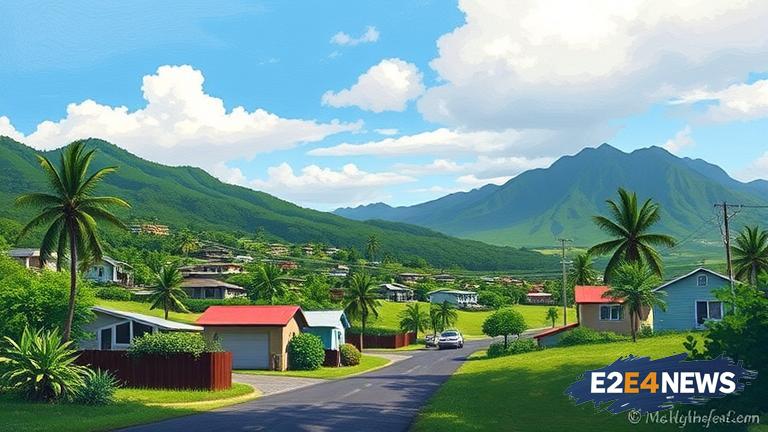A recent proposal for a housing project in Haleiwa, a small town on the North Shore of Oahu, Hawaii, has been met with fierce resistance from community members. The project, which aims to build hundreds of new homes, has been criticized for its potential to exacerbate traffic congestion, put a strain on local infrastructure, and harm the environment. Hundreds of residents have come out to oppose the project, citing concerns over the impact it could have on their quality of life. Many have expressed worries that the increased population would lead to longer commute times, more traffic accidents, and a decrease in air quality. Others have raised concerns about the potential destruction of natural habitats and the loss of agricultural land. The project’s developers have argued that the new housing is necessary to address the island’s affordable housing crisis, but opponents argue that the project does not provide enough affordable units and would primarily benefit wealthy outsiders. The controversy has sparked a heated debate about the future of Haleiwa and the balance between growth and preservation. Community members have also expressed frustration with the lack of transparency and public input in the planning process. Some have accused the developers of ignoring the concerns of local residents and pushing the project through without adequate consideration for the potential consequences. The opposition has been led by a group of local residents, who have organized rallies, petitions, and town hall meetings to raise awareness about the issue. The group has also been working with local officials to try to block the project or modify it to address their concerns. Despite the opposition, the project’s developers have stated that they intend to move forward with the plan, citing the need for more housing on the island. However, the controversy is likely to continue, with many residents vowing to fight the project every step of the way. The issue has also sparked a broader conversation about the need for sustainable and responsible development in Hawaii, and the importance of preserving the state’s unique natural beauty and cultural heritage. As the debate continues, it remains to be seen whether the project will ultimately be approved, and what the consequences will be for the community. The fate of the project will likely depend on the outcome of upcoming public hearings and the decisions of local officials. In the meantime, the opposition is likely to continue, with many residents remaining committed to fighting the project. The controversy has also highlighted the need for greater transparency and public input in the planning process, and the importance of considering the long-term consequences of development projects. Ultimately, the outcome of the controversy will have significant implications for the future of Haleiwa and the state of Hawaii as a whole. The project’s impact on the environment, infrastructure, and quality of life will be closely watched, and the decision will set a precedent for future development projects in the state. As the community continues to debate the issue, one thing is clear: the fate of Haleiwa and the North Shore hangs in the balance. The project’s developers must take the concerns of local residents seriously and work to address them, or risk facing continued opposition and controversy. The people of Haleiwa are determined to protect their community and their way of life, and they will not back down without a fight. The controversy is a reminder that development projects must be carefully considered and planned, with input from local residents and a commitment to sustainability and responsibility. The future of Hawaii depends on it.
